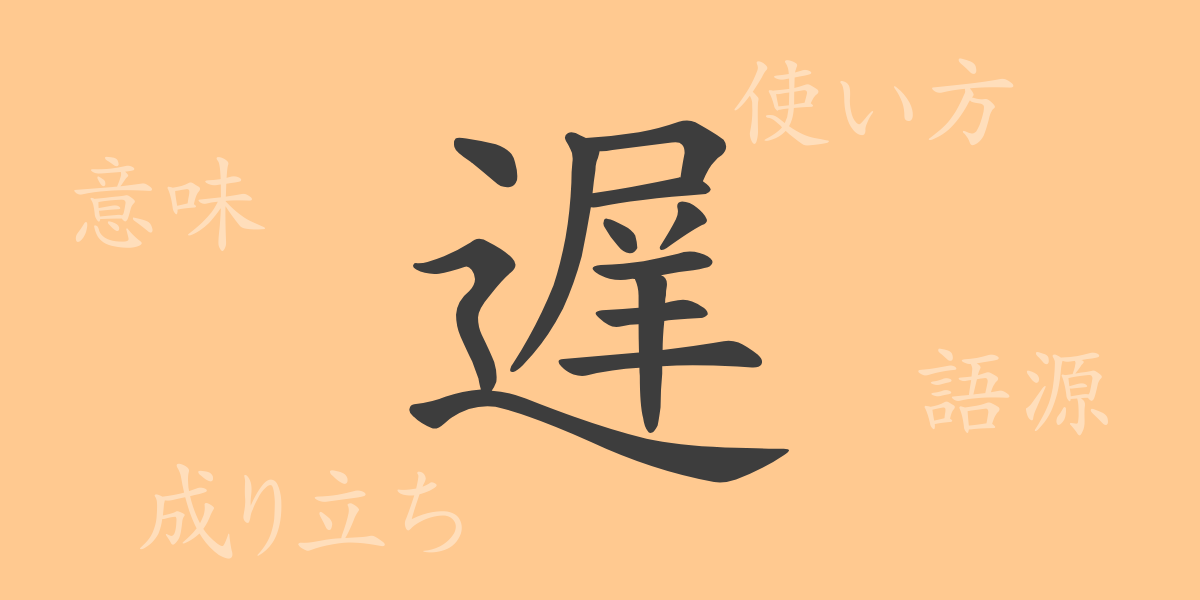It is often said that time is money, but human perception of the passage of time is diverse. The kanji “遅(おそ)” in Japanese encompasses many nuances beyond simply being late. This article delves into the history and meaning of the character “遅(おそ),” its readings, and the idioms and proverbs in which it is used. Let’s take our time to explore the deep world of this kanji.
Origin of “遅(おそ)”
The kanji “遅(おそ)” originated in ancient China, where it was used to denote lateness. This character is composed of “彳(ち)” (meaning “to walk”) and “羊(ひつじ)” (sheep), symbolizing a person walking slowly like a sheep, thus representing the concept of being late.
Meanings and Usages of “遅(おそ)”
The kanji “遅(おそ)” means to be later than scheduled or to move or proceed slowly. It is frequently used in daily conversation and business contexts in forms such as “遅刻(ちこく)” (being late), “遅延(ちえん)” (delay), and “遅れる(おくれる)” (to be late). It can also be used metaphorically, for instance, to describe slow progress as in “発展が遅い” (development is slow).
Readings, Stroke Count, and Radical of “遅(おそ)”
The kanji “遅(おそ)” has several readings and structural details:
- Readings: On’yomi (音読み) “チ(ち),” Kun’yomi (訓読み) “おく.れる(おくれる),” “おく.らす(おくらす),” “おそ.い(おそい)”
- Stroke count: 12 strokes
- Radical: The radical is “辵(しんにょう)” (shinnyou).
Idioms, Proverbs, and Expressions Using “遅(おそ)”
There are many idioms and expressions containing “遅(おそ)”:
- 遅刻(ちこく): Arriving late.
- 遅延(ちえん): Delaying beyond the planned time.
- 遅速(ちそく): Speed, whether slow or fast.
- 手遅れ(ておくれ): Missing the appropriate time to deal with something.
- 後手に遅れる(あとてにおくれる): Being late to respond, resulting in a disadvantageous situation.
These expressions are commonly used in daily life and business settings to describe attitudes and situations related to time.
Summary of “遅(おそ)”
The kanji “遅(おそ)” is an important character used to describe the passage of time and slowness. Understanding its readings and meanings is essential for effective communication in Japanese. Additionally, idioms and expressions containing “遅(おそ)” reflect Japanese culture and values, providing insights into the deeper meanings behind the words. In time-conscious Japanese society, the character “遅(おそ)” plays a crucial role in our daily lives.

























